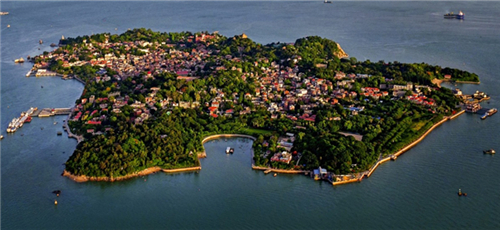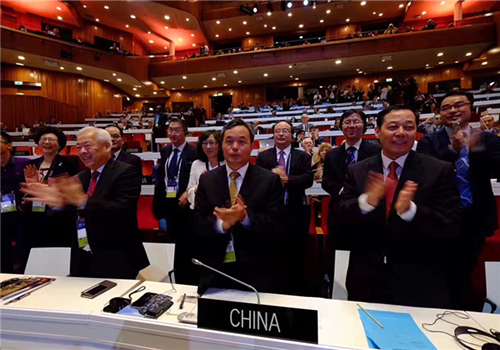Kulangsu, China’s historic international settlement, earns place on the World Heritage List
2017-07-13
The World Heritage Committee recently held its 41st session, during which China's historic international settlement, Kulangsu, was inscribed on the United Nations cultural wing’s World Heritage List on July 8.
Kulangsu is an island off the coast of Xiamen in Fujian province. Due to its unique geographic location, Kulangsu became a significant point for Sino-foreign exchanges following the First Opium War. A commercial port was opened in Xiamen in 1843 and the island of Kulangsu became an international settlement soon after, in 1903.
Lyu Zhou, a professor at Tsinghua University closely involved in the selection process for Kulangsu to be a World Heritage Site, explains that Kulangsu is a tangible example of the cultural fusion that emerged from Sino-foreign exchanges and integration of traditional and modern culture. History has shaped Kulangsu into a unique international settlement.
"We’ve attached meaning to the settlement and the people living within it. In this way, the local community can gain impetus to actively participate in the conservation of Kulangsu heritage site. This is what differentiates Kulangsu from other historical sites in the process of competing for World Heritage Site status,” Lyu added.
Lyu Zhou and his team at the Cultural Heritage Conservation Center of the Architectural Design & Research Institute of Tsinghua University, a subsidiary of the Tsinghua Holdings Habitat Development Group affiliated to Tsinghua Holdings, made great planning and implementation efforts in the past eight years to place Kulangsu on the World Heritage List.
"Kulangsu’s historic buildings, surroundings, and culture are defining components of its rich heritage. We set out to protect Kulangsu through applying for it to become a world heritage site. We focused on continuing the past culture of Kulangsu and helped locals establish a renewed sense of confidence towards Kulangsu culture. All these efforts resulted in positive effects during the application process,” Lyu said.

An aerial view of Kulangsu

Professor Lyu Zhou (R) receives an interview.

The Chinese delegation celebrates the successful application of Kulangsu to become a UNESCO world heritage site.

 Facebook
Facebook WeiXin
WeiXin CONTACT US
CONTACT US










 Tsinghua Holdings works hard for better ecological environment
Tsinghua Holdings works hard for better ecological environment